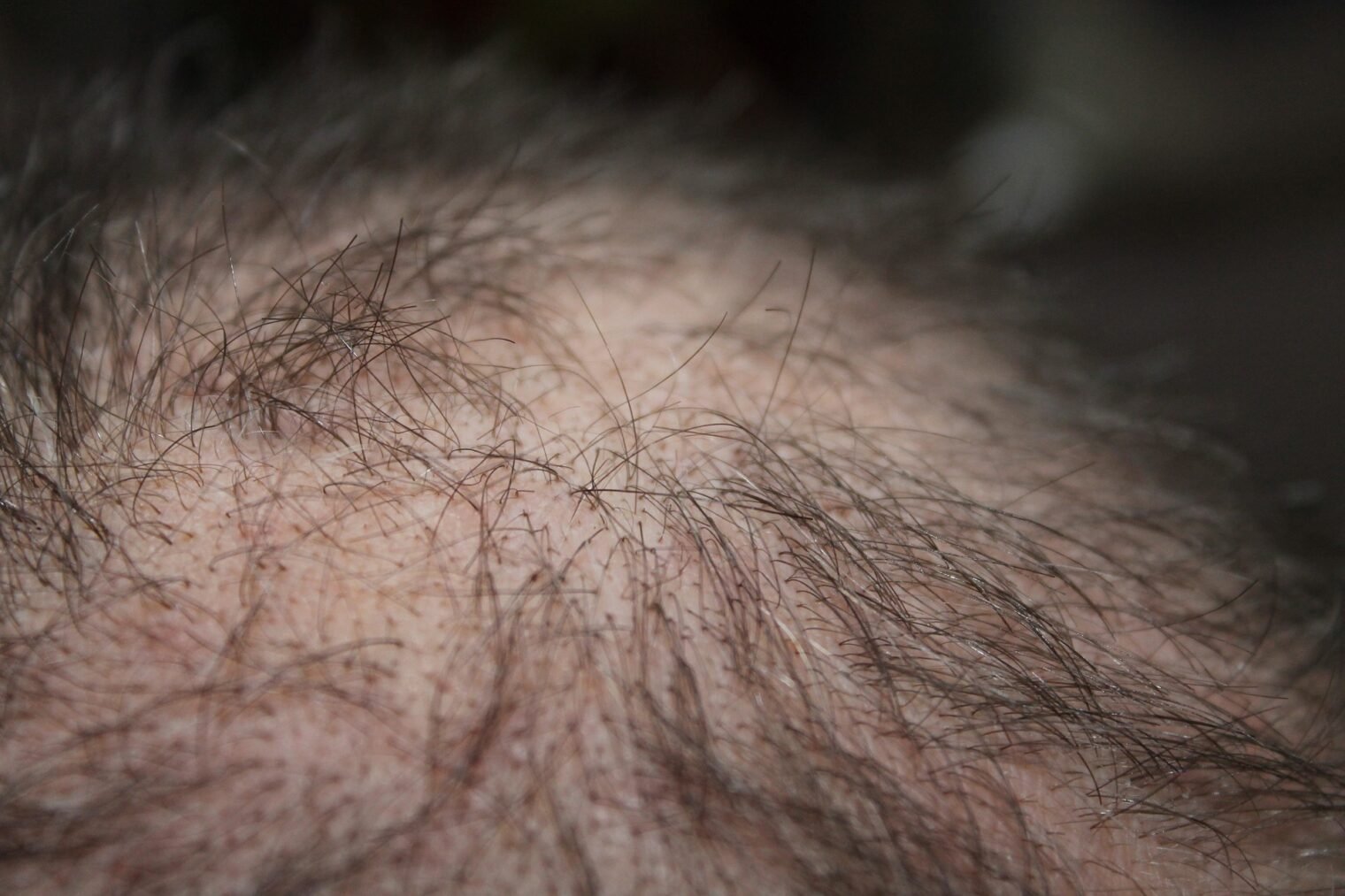Managing hair loss is the bane of some men. Losing hair can make anyone feel worried. It’s a common problem that many people face around the world. Hair loss can affect not just how you look but also how you feel about yourself.
It’s important to know, though, that solutions exist for this issue.
Did you know that stress and poor diet can lead to losing more hair? But don’t worry, our article will guide you through various ways to manage hair loss. From simple changes in your daily routine to considering surgery, we outline steps to help regrow your lost locks.
Keep reading for helpful tips on managing hair loss!
Understanding Managing Hair Loss
Hair loss occurs due to various factors and can manifest as thinning or balding. Understanding the causes and symptoms is essential for effectively managing hair loss.
Causes and symptoms
Several factors can lead to hair loss, including genetics, hormonal imbalances, age-related changes, and certain medical conditions. Medications for other health issues might also trigger hair thinning or balding.
The use of harsh hair care products or hairstyles that pull tightly on the scalp can further contribute to this condition.
Symptoms often start with a noticeable increase in hairs on your pillow, brush, or shower drain. You may see thinning patches on your scalp or experience an overall decrease in volume.
For some individuals, the hairline starts receding from the forehead in a pattern commonly associated with male pattern baldness. In severe cases, clumps of hair might come out suddenly when combing or washing.
Complications
Complications arising from hair loss can include emotional distress, decreased self-esteem, and even social anxiety. Additionally, hair loss complications may lead to a negative impact on an individual’s overall quality of life.
It is crucial for individuals experiencing these complications to seek support and explore various intervention options such as medical treatments like minoxidil and finasteride, as well as surgical solutions like hair transplant surgery.
By addressing the complications associated with hair loss proactively, individuals can work towards restoring their confidence and enhancing their overall well-being.
Managing Hair Loss with Non-Surgical Methods
Managing hair loss with non-surgical methods incorporating a balanced diet and supplements is a smart move. Implement proper hair care tips to maintain scalp health, and explore medical treatments such as laser therapy and PRP for possible regrowth.
Additionally, consider the use of medications like minoxidil and finasteride, along with natural remedies such as essential oils, massage, and yoga to promote hair rejuvenation.
Diet and supplements
A balanced diet is crucial for maintaining healthy hair. Foods rich in protein, iron, and vitamins such as A, C, and E promote hair growth and scalp health. Incorporating supplements like biotin or omega-3 fatty acids can also support overall hair health.
These nutrients help nourish the hair follicles from within, contributing to improved hair rejuvenation and regrowth.
Supplements containing ingredients like saw palmetto or pumpkin seed oil may help with pattern baldness by blocking the enzyme that converts testosterone into dihydrotestosterone (DHT), a hormone linked to hair loss.
Hair care tips
Regularly washing your hair with a gentle shampoo and conditioner can help keep your scalp clean and prevent the buildup of oil and dirt. Use lukewarm water when washing your hair to avoid stripping away natural oils, and finish with a cool rinse to seal the cuticles.
Limiting the use of heat-styling tools like flat irons, curling wands, and blow dryers reduces damage to your hair. Trim split ends every 6-8 weeks for healthy growth. Massaging essential oils into your scalp can stimulate circulation and promote hair growth.
Moving on to “Managing Hair Loss with Non-Surgical Methods”…
Medical treatments (laser therapy, PRP)
Laser therapy and platelet-rich plasma (PRP) are medical treatments used to manage hair loss. Laser therapy involves using low-level laser light to stimulate hair follicles, promoting hair growth.
Meanwhile, PRP therapy harnesses the body’s own healing properties by injecting a concentration of platelets into the scalp, stimulating inactive or newly implanted hair follicles.
Both laser therapy and PRP offer non-invasive approaches to managing hair loss, making them popular options for individuals seeking natural remedies for their condition. The efficacy of these treatments can vary depending on factors such as the underlying cause of hair loss and individual response to treatment.
Medications (minoxidil, finasteride)
After exploring non-surgical methods such as laser therapy and PRP, medications like minoxidil and finasteride play a significant role in managing hair loss effectively. Minoxidil applied topically, promotes hair growth by widening blood vessels to deliver more oxygen, blood, and nutrients to the follicles.
On the other hand, oral finasteride works by inhibiting the hormone dihydrotestosterone (DHT), which shrinks hair follicles. These medications are among the most widely used pharmaceutical treatments for pattern baldness and have shown success in promoting hair regrowth when used consistently.
For those seeking a pharmacological approach to combatting hair loss or enhancing their post-hair transplant recovery, these medications are designed to enhance the potential for sustained results.
Natural remedies (essential oils, massage, yoga)
Transitioning from the use of medications like minoxidil and finasteride to natural remedies, consider incorporating methods such as essential oils, massage, and yoga into your hair care routine.
Essential oils, including rosemary and peppermint oil, are thought to promote hair growth when massaged into the scalp. Regular scalp massage can increase blood flow to the hair follicles, improving their health and stimulating growth.
Additionally, practicing yoga may help reduce stress levels which can contribute to hair loss. Incorporating these natural remedies alongside medical treatments can complement your efforts in managing hair loss effectively.

Surgical Options for Hair Loss
Surgical options for managing hair loss include hair transplant surgery and platelet-rich plasma therapy, which involves injecting a concentration of the patient’s own platelets into the scalp to stimulate hair growth.
These procedures offer long-term solutions for individuals seeking more than just temporary relief from their hair loss concerns.
Hair transplant surgery
Hair transplant surgery involves moving hair follicles from one part of the scalp to another. This procedure is typically used to treat male pattern baldness and can also be used to restore eyelashes, eyebrows, and beard hair.
The surgeon carefully removes healthy hair follicles from the donor area and implants them into the balding or thinning areas. Over time, the transplanted hair will begin to grow naturally, creating a fuller appearance.
This surgical option has shown significant success in restoring natural-looking hair for many individuals struggling with hair loss.
Platelet-rich plasma therapy, on the other hand, involves using a patient’s own blood platelets to stimulate natural hair growth. By injecting concentrated platelets into the scalp, this treatment may help improve existing hair density and promote new follicle growth.
Platelet-rich plasma therapy
Platelet-rich plasma therapy involves using a concentration of platelets from the patient’s own blood to promote hair growth. This technique, often used in conjunction with hair transplant surgery, is designed to enhance the healing process and improve the overall success of the procedure.
The platelets help stimulate natural hair growth by delivering essential proteins and growth factors to the scalp, thereby aiding in the regeneration of healthy hair follicles.
Prevention and Prognosis
Preventing hair loss involves adopting a healthy diet and following good hair care practices. Understanding the prognosis for hair regrowth can provide valuable insight into managing this condition effectively.
Tips for preventing hair loss
To prevent hair loss, maintain a balanced diet rich in vitamins and minerals. Regularly consume protein, iron, and biotin to support healthy hair growth. Use gentle shampoos and avoid excessive heat styling or tight hairstyles that can stress the hair shaft.
Protect your hair from UV rays with a hat or sunscreen for scalp care. Manage stress through relaxation techniques like meditation or yoga to minimise its impact on your hair health.
Consistent scalp massage can improve blood circulation and stimulate follicles, promoting stronger, healthier strands. Consider consulting a healthcare professional if you notice sudden or severe shedding to address any underlying medical conditions that may contribute to hair loss.
Prognosis for hair regrowth
The prognosis for hair regrowth after undergoing a hair transplant surgery is generally positive. Most individuals experience noticeable hair growth within 6 to 9 months following the procedure.
The transplanted hair follicles establish new roots and continue to grow normally, resulting in natural-looking and long-lasting results. It is essential to adhere to post-operative care instructions and follow-up appointments with your healthcare provider to ensure optimal healing and successful outcomes.
Additionally, medications such as minoxidil or finasteride may be prescribed alongside the surgical procedure to promote further hair regrowth and prevent future hair loss. These pharmaceutical interventions can complement the effects of the surgery, contributing to an improved overall prognosis for sustained hair growth. Managing hair loss is important for some men.
Managing Hair Loss in 2024
In summary, understanding the causes and symptoms of hair loss is crucial. Implementing practical tips such as dietary adjustments, proper hair care, and medical treatments can effectively managing hair loss.
Surgical options like hair transplant surgery offer efficient and long-lasting solutions. Emphasising the importance of proactive measures for prevention is vital in combating and managing hair loss.
Readers are encouraged to explore additional resources for further guidance on managing hair loss successfully. Ultimately, taking action today towards healthier hair is key to restoring confidence and well-being.















